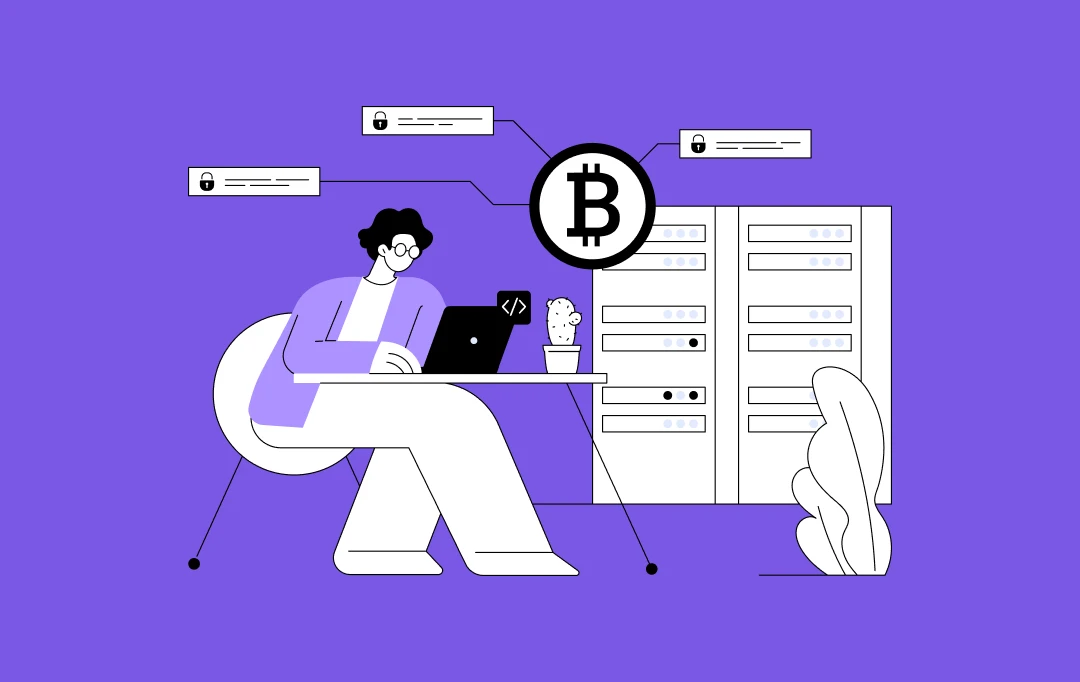- What is Blockchain?
- How Does Blockchain Works?
- The Three Blockchain Pillars
- Types of Blockchain
- Public Blockchain
- Private Blockchain
- Hybrid Blockchain
- How Are Industries Answering What is Blockchain used for?
- Banking
- Healthcare
- Government
- Manufacturing
- Real Estate
- Charities
- Education
- Countries Which Have Openly Embraced Blockchain Technology
- China
- Japan
- USA
- Australia
- Dubai
- UK
- India
- Challenges Hindering Blockchain’s Mass Adoption
- Scalability
- Slow & Cumbersome
- High Energy Consumption
- Lack of Adequate Skill Set
- Conclusion
What started as an anonymous invention, Blockchain has today become one of the most disruptive technologies that the world is starting at.
The technology today, has grown leaps and bounds to become the top technology trend of the present time and the years to come.
But even amidst the technology being in the news and entrepreneurs, businesses, and even the world economies finding ways to catch up on the trend and thinking of its use cases, the understanding of the technology’s fundamentals is still less known.
However, this mushrooming technology is growing and making its mark in every field, be it in health care, real estate, agriculture and food. The scope of improvement is vast, for example blockchain in agriculture and food sector is inviting both the producer and the purchaser in great numbers as it is simplifying the processes, bringing transparency, and accumulating quality production.
The intent of this infographic is to talk about the very basics and benefits of blockchain technology and bring everyone who is willing to go next-gen on the same page.

The infographic above would have given you the understanding of the basics of blockchain technology. Let us now take you through the technology descriptively, starting with the basics of what it is and what differentiates Blockchain from traditional database.
What is Blockchain?
Blockchain is tamper-evident, shared digital ledger which records all transactions in public or private peer-to-peer network. Spread across all the member nodes in a network, the ledger permanently records – in a sequential chain of cryptographic hash-linked blocks – the history of asset exchanges which took place between the network peers.
How Does Blockchain Works?
Let us explain this with an example.
Suppose Dave wants to get his birth date added in the ledger. His request is broadcasted on a P2P network which consists of computers, known as nodes. The P2P network validate the request using algorithms. Once the request is verified, a new block is added to the ledger. The way this block is added is unalterable and permanent.
The transaction then gets completed and the birth date gets added in Blockchain.
Now that we have looked into what Blockchain is and how it works, let us look into the next factor in the basics of blockchain technology –
The Three Blockchain Pillars
There are three things that separates the properties of Blockchain – a decentralization torchbearer from traditional centralized mode of operations. These are the features of Blockchain which hold the entire weight of Blockchain’s profound popularity especially in terms of business communication networks and security, and are a part of every Blockchain guide for Entrepreneurs.
- Decentralization
In terms of Blockchain, Decentralization is the occurence of the fact that the ledger exists on multiple systems, referred to as nodes. This is stark opposite to the centralized model where all the data is stored in one place.
- Transparency
Every action which is performed on the Blockchain is driven by a digital signature, which can be traced back to a system. This added with the decentralization factor, in extension, makes it impossible for any of the nodes to perform an action without others in the system knowing.
- Immutability
The data once entered in the Blockchain cannot be altered by any participating node. The only solution available to the hackers is to create a new block – something that the nodes will easily catch and reject.
Types of Blockchain
Blockchain models varies greatly on the basis of transparency and participation. Between one use case to another, Blockchain is divided into three parts.
Public Blockchain
It is one which allows anyone to join the Blockchain network. The assumption with these are that every single of the node will be rewarded for performing the duties truthfully.
Private Blockchain
It is a closed Blockchain where privacy is of top importance. Every single one of the participative node is vetted and pre-selected. Because it is a trusted network, the motivation behind the creation and participation is less profit-making and more business collaborative.
Hybrid Blockchain
Presently, Public Blockchain comes with a very low transaction speed. On the other side, a Private Blockchain is able to support transactions at a much faster rate, especially because the consensus finality is a lot faster.
Another thing that is different between Private and Public Blockchain is the Blockchain app development cost – Public blockchain being more expensive than Private blockchain. In the Hybrid Blockchain, every single transaction happens quickly in a private chain and then is committed to the public chain when needed, for example when a public verification is needed.
How Are Industries Answering What is Blockchain used for?
There is no single operative industry which will not have a use case for the Blockchain technology to disrupt. The technology holds the ability to convert all industries and businesses towards decentralization.
The market of blockchain development companies though, can foresee the technology affecting these prime areas.
Banking
From virtual currencies to open banking and the world-wide banking systems getting connected, Blockchain will affect the Finance industry as a whole, touching upon all its facets. The time to come will see the rise of Decentralized Finance (DeFi) adoption in finance software development.
Healthcare
Blockchain will prove to be a game changer for the interoperability challenges that face the Healthcare domain. Every bit of the health information will be made accessible in real-time through the combination of Blockchain and Healthcare.
Government
A decentralized government would eliminate the bureaucratic red tape and inject transparency, efficiency, and security in the system and processes.
Manufacturing
The entire process of making a product available from the manufacturer to the end users will be transparent and accountable at every stage through Blockchain’s incorporation.
Real Estate
When talking about the role of Blockchain in real estate, the technology is helping with mitigating existing challenges like massive paperwork, escrow, transfer of money, and high commission rates.
Charities
The profit making image of charities and social groups will cease to exist, with the facility of smart contracts and transparency that Blockchain comes with.
Education
Getting access to students’ records and course transcripts will now become a matter of a few clicks and uber real timeness with the inclusion of Blockchain in Education sector.
Countries Which Have Openly Embraced Blockchain Technology
The rate of adoption and research around Blockchain spans across the world. While some have already started incorporating the technology, some are still working around their bureaucratic systems. There is hardly any country which is not thinking of a Blockchain future for their economy or spending time in understanding the basics of Blockchain technology.
China
More than 500 Blockchain projects have registered themselves in the Chinese government’s Cyberspace Administration which is run by the state-owned banks, tax and court offices.
China is also looking to expand its focus on the blockchain technology, in the education domain. In his speech, Xi urging for the development of initiatives like “Blockchain+,” – platform for personal development in the areas like employment, education, and health.
Japan
Japan is one of the leading hubs for Blockchain in the world. Having understood the importance of the technology, companies like Sony and Fujitsu are openly working in the direction of becoming blockchain technology companies.
Besides this, here are some pointers to back how Japan is opening up to Blcokchain:
- Japan is leading the traffic to ICO listing websites across the globe.
- The Japanese YEN accounts for 40% of the global trading Bitcoin volume only second to the US dollar.
- Japan is also the first country to have recognized Bitcoin as a legal payment option.
USA
The US FDA, a few years ago, announced that they have signed an agreement with IBM Watson Health branch for finding the future of Blockchain in the sharing of patients’ data, safely. This partnership is aimed at addressing the absence of transparency and safety in the process of how health data is collected and passed.
Also, Trump Government in 2018 gave the Department of Homeland Security a green signal to award a grant of over $192,380 to Factom, a company which measures the ability of the technology in protection of data collected from Border Patrols’ sensors and cameras.
Australia
The relation between Australia and Blockchain is not very old. The journey of the country in the Blockchain domain started in 2016 with Australian Security Exchange (ASX).
Here are the other significant events that have happened between 2016 and 2019 on the front of Australia and Blockchain’s relation –
2016
- The Australian Securities Exchange (ASX) looked for venturing opportunities in Blockchain for future trading.
- Australia was awarded the tender for standardizing the blockchain technology
- Incent and ChronoBank announced Australia’s first two Initial Coin Offerings (ICO)
2017
- Australia’s largest bank, the Commonwealth Bank of Australia (Commonwealth Bank) issued a cryptobond
- Australian Securities and Investments Commission (ASIC) published ICO guidelines and the Power Ledger project raised $34 millions.
2018
- WWF used blockchain to handle human rights abuses and illegal fishing.
- A real estate transaction was developed on Ethereum blockchain.
- Brisbane International became the first Crypto-Friendly Airport.
- Queensland Government backed the City of Bundaberg for accepting cryptocurrency payments for tourist attractions and local companies.
2019
- Capgemini and Swinburn University will together develop a ‘Global Blockchain Centre of Excellence’ in Melbourne.
- South Australian Government announced its plan to use Blockchain technology for conducting an official election.
Dubai
The Dubai government is working with the intent to become the first nation to bring all the public transactions on Blockchain by 2020.
They have even estimated that the inclusion of Blockchain can save over 5.5 billion dirhams that otherwise goes into document processing tasks, meaning they would be able to get back 25.1 million hours of their occupied resources and engage them in bettering their economy’s productivity.
UK
In 2018, the UK’s FSA became the torch-bearer of Blockchain’s adoption. They developed a pilot to track meat distribution in the slaughterhouses to check if they followed compliances of the food sector.
Following the success that FSA saw, a number of other bodies soon caught up –
- Defra integrated Blockchain to better the process of food traceability
- HM Land Registry is finding ways to add the technology in the process of investigation of how to improve property buying and selling process and land registration.
- The Department of Work and Pensions is also assessing the technology’s power in checking how it can benefit claimants by managing their money
India
The sentiment that India carries towards Blockchain technology is positive throughout. According to the NASSCOM 2019 Blockchain Report, the adoption rate in the country is on a constant growth and investments rise. In fact, the number of projects built by blockchain development companies have crossed the $20 billion cross across multiple industries.
Moreover, according to the statistics shared by the World Intellectual Property Organization, India is top sixth in the list of patents given out in the blockchain domain.
Challenges Hindering Blockchain’s Mass Adoption
Becoming a powerhouse right at the nascency stage comes with multiple facets. The most challenging one is developing yourself fast enough to meet the massive expectations that the industries and economies carry.
Between increasing expectations and out of synch adoption rate, Blockchain is struggling with challenges that are slowing down its growth rate.
Let us look at some of the challenges of Blockchain development:
Scalability
Irrespective of how widely Blockchain is being adopted in the market in the current time, it is yet to be developed in a way where scalability would be supported. While Blockchain is prepared for small category projects, the same is not the case with the development of mid or high complexity projects.
Slow & Cumbersome
The approval or rejection time it takes to validate a transaction is still very slow. On an average, the time it takes the nodes to reach a consensus lies in several seconds in case of simple transactions, which in turn can grow up to several minutes in case of complex transactions.
High Energy Consumption
The computational energy required to validate a transaction and upload the blocks is very high. This high energy consumption, usually translates into a high cost, which makes the overall maintenance of a Blockchain project very expensive.
Lack of Adequate Skill Set
Blockchain is still at its nascency stage, meaning it will still take several years for it to reach a point where the number of developers involved in the process are high. The present state is such that the number of developers and the blockchain development agencies are very limited.
Conclusion
As you must have seen in the infographic we started with and the detailing that we shared, while the present of Blockchain might be in a working state, the future of Blockchain in terms of technology trends is extremely upward looking. The feature set that the technology comes with, promises a revolution, which would take the businesses towards decentralization, while bettering the world economy.



How Much Does it Cost to Build a Blockchain App in the UAE?
Key takeaways: The UAE blockchain market is rapidly expanding, with the BFSI sector capturing over 50% of the market share. As blockchain adoption accelerates, development costs in the UAE range from AED 55,000 to AED 1.85 million, depending on app complexity and features. Factors such as platform selection, security measures, and third-party integrations directly impact…

How Blockchain Integration Is Optimizing Business Processes in Dubai
Key takeaways: Blockchain is a strategic enabler in Dubai, transforming traditional business workflows by enhancing efficiency, transparency, and automation beyond cryptocurrency applications. Dubai’s supportive regulatory environment and government initiatives (e.g., VARA, Dubai Blockchain Strategy) create a clear, innovation-friendly framework, accelerating blockchain adoption. Integration with legacy systems through modular blockchain solutions enables enterprises to modernize operations…

OTC Crypto Exchange Development - Benefits, Features, Process, Costs
As the world of cryptocurrency continues to evolve, the demand for Over-the-Counter (OTC) crypto exchanges has surged. Unlike traditional exchanges that are open to all traders and often suffer from market slippage when large trades are executed, OTC exchanges cater specifically to institutional investors, high-net-worth individuals, and corporate traders who need to make large transactions…















